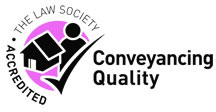Recent research by Loughborough University shows a sharp rise in the so called ‘boomerang’ generation of young adults returning to live at home until their late twenties or early thirties. This trend has continued as a result of the pandemic causing job losses, furlough, and university closures.
‘With the shape of family life changing, we are seeing an increase in queries about whether adult children living at home have any rights in a divorce,’ says Debra Taylor, family law expert at Richard Reed Solicitors. ‘The law makes a number of provisions to ensure minor children continue to be cared and provided for following divorce, but more recently the children living at home are older. Unlike a tenant or lodger there is unlikely to be any legal formalities in place, such as a tenancy agreement, to stipulate the rights of a young adult living at home. This can create uncertainty for all involved as to what, if any, rights that adult child has.’
This can be a worrying and stressful time for all involved, especially if the family home needs to be sold. The child may be aggrieved and feel they deserve a share in the property, especially if they have contributed financially, or they may seek ongoing financial help from parents to rehouse themselves.
The rights of an adult child are extremely limited. The law does not impose an ongoing obligation on parents to maintain their adult child, except in certain specific circumstances, nor does the law require parents to continue to provide a home for them.
There are two main pieces of legislation governing an adult’s right to claim from their parents, namely the Matrimonial Causes Act and the Children Act.
Neither of these permit a child to obtain a legal interest in the family home on divorce but, under certain circumstances, they do permit an adult child to obtain ongoing maintenance from a parent which may assist with their housing needs.
Matrimonial Causes Act
Under the Matrimonial Causes Act, a child over the age of 16 can apply for maintenance from their parents provided a periodical payments order has already been made in their favour when they were a minor. This legislation only applies to children of married parents.
A periodical payments order is an order of the court stipulating a level of financial maintenance that should be paid to the parent with whom the child resides. Typically, it would be agreed at the time of separation. If there are no periodical payment orders in place, then an adult child cannot apply for maintenance under this legislation.
If a previous periodical payments order was in place, then an adult child can apply to the court. If successful, this would enable the child to obtain maintenance from their parent by way of periodical payments or a lump sum. These orders are rare and tend to be made where the child is continuing in education or undergoing training for a trade or profession.
The court also has power under this Act to grant maintenance in special circumstances. There is no clear definition of special circumstances, but previous cases have usually involved an adult child with a disability. The court tends to be sympathetic to cases where that disability means they will have an ongoing dependency or requirement for expensive medical equipment, treatments, and employment of specialist support.
Children Act
The Children Act provides a potential alternative route, especially when the parents have not been married. There must not have been a maintenance order in place while the child was under 16. If there was then, perhaps bizarrely, an adult cannot apply now.
It enables an adult child to seek maintenance from their parents if they will be or are in further education or training for a profession or vocation, or, if there are special circumstances to justify making an order. What constitutes special circumstances will be the same as in the Matrimonial Causes Act.
Again, this order can be for periodic payments or a lump sum. Unlike for minor children, it does not provide rights or interests for the adult child in the family home.
What are the considerations?
The considerations for both the Acts are very similar. If you are entitled to apply, then the court will assess the following:
- the income and earning capacity of each parent;
- the financial needs and obligations of each parent;
- the child’s financial needs and their own ability to generate an income now and in the future;
- any physical or mental disability of the child; and
- any education or training they intend to undertake.
This will necessitate a disclosure by both parents and the adult child of any assets they hold and their incomes. The court is not limited in the amount it can award, which will be proportionate to the needs of the child.
Can an adult child ever claim an interest in the family home?
It is possible for an adult child to bring a claim ‘in equity’ stating they have a right over the family home. This is a civil action in which the adult child claims that, although they are not a legal owner of a property, it is only fair and just because of assurances they were given and actions they took that they could stake a legal interest in the property.
This type of situation can arise in a number of ways. Typically, it involves the situation where there is a family-run farm. A child may have given up the opportunity of gainful employment to work for a low wage on the farm after an assurance that the farm would be theirs one day. They may have made several sacrifices and even investments in the farm business on the basis of promises made to them. If that case arose, then the parents making those promises maybe found unable to deny that an interest in favour of their child exists. The circumstances could also arise in other family-run businesses which are tied to the home, such as a hotel or garden centre.
The adult child may also be able to bring a claim if they have invested heavily in the house on the assurance it would be theirs. They may have extensively renovated the house, built an extension or annex, or modernised electrics and heating at substantial cost.
Cases in equity can be costly and difficult to quantify. It is important that early advice is sought in order to avoid a lengthy legal dispute.
In conclusion
While adult children may have few rights for financial maintenance from their parents, it is no doubt a stressful time for all the family when parents go through a divorce. Adult children may even be burdened with more of their parents worries and feelings as they are not shielded in the same way as minor children.
If an adult child has invested in your family home, then recognising this at an early stage can save significantly in legal costs. It is important to open dialogue early and ensure adult children are aware of any potential house sale in order that they can make their own arrangements in good time. After all, maintaining a good relationship with your children will be of paramount importance.
For further information, please contact our family law team on 0191 567 0465 or email: [email protected]









